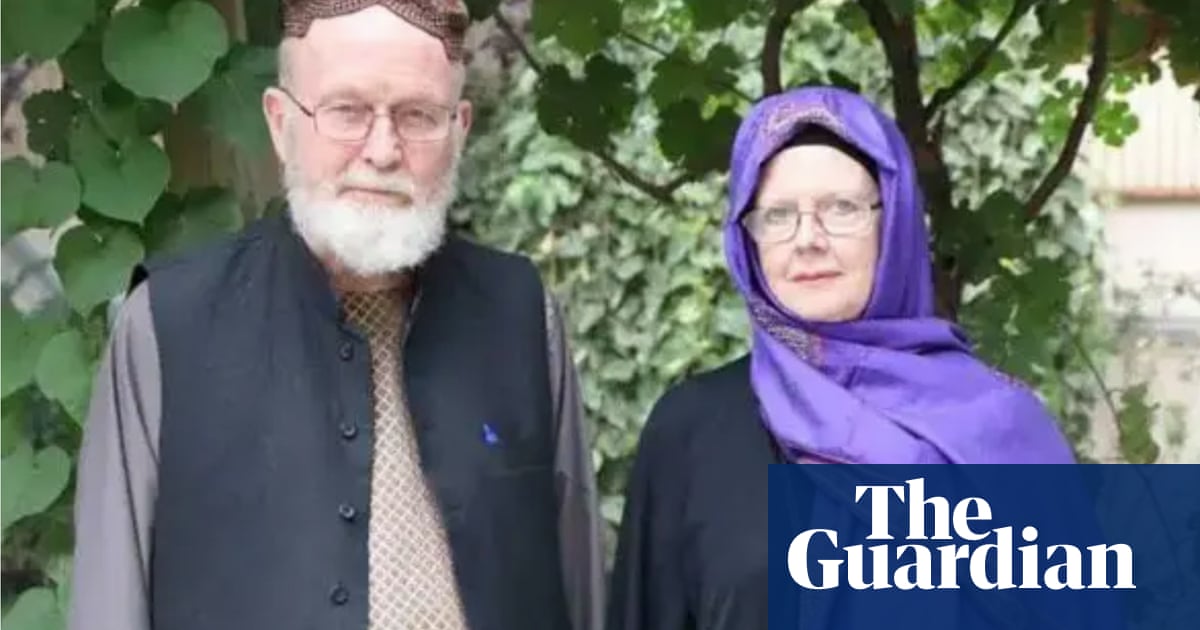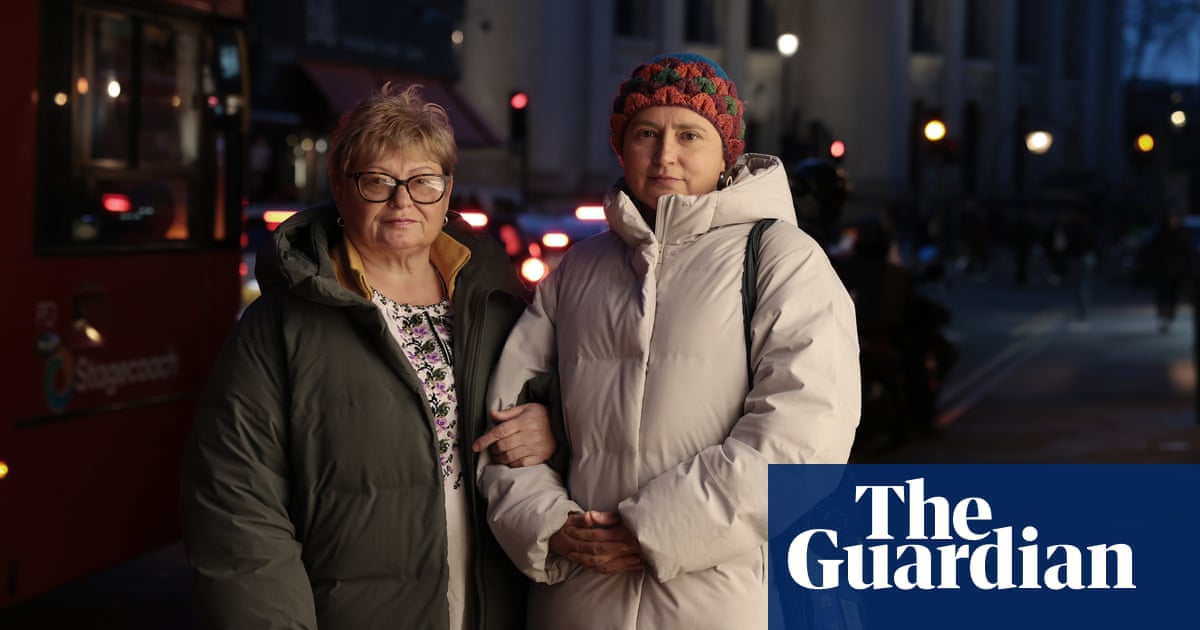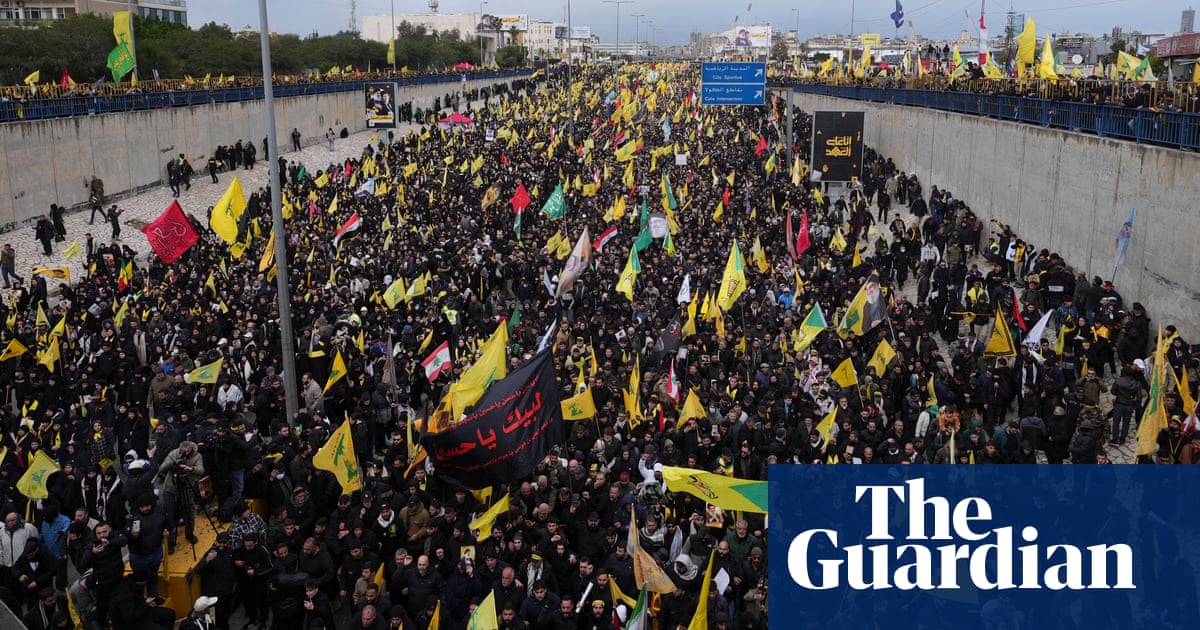My sister is 68, and today is her 60th day on hunger strike. This is her latest battle against injustice, and she knows it may be her last.
Laila is fighting for the freedom of her son: Alaa Abd el-Fattah, the British-Egyptian writer, software developer and democracy activist who is Egypt’s most high-profile political prisoner. Alaa has served two five-year prison sentences. The first for participating in a 15-minute silent protest, the second for reposting a Facebook post about a prisoner who had died in prison.
Alaa was supposed to be released on 29 September. When he wasn’t, our suspicions that the authorities would never let him go were confirmed. That’s when his mother stopped eating. “They will never let him go,” she said, “unless they are faced with a crisis.” To try to create whatever crisis she can she is prepared to die.
My sister is a mathematician. She would say she became a mathematician when she was seven and was introduced to maths by a Mr O’Mahoney in a Clapham primary school. She’d been born in London when our parents were graduate students. Now – academics at Cairo University – they were spending their sabbatical here. I, a moody adolescent, rebelled against the school, the weather, the whole enterprise, but Laila went happily to school and discovered a lifelong passion.
Back in Cairo: “I refuse,” my sister said, “to live in a box!” She was eight years old. We were sharing a room for a while and I, a few years older, was insisting on everything being tidy and squared off. We put up a screen, splitting the space.
At 11, she stormed at us, her family, across lunch, that we were all living in a bourgeois box, and then she ran away to live with the salt-of-the-earth woman who cooked for us. In time, my mother persuaded her to come home. My father, a psychologist, suggested that she see “the box” as a cube with six potential exits.
In his book You Have Not Yet Been Defeated, Alaa records how his mother, at 16, escaped from school to join the student protests in Tahrir: “Laila Soueif,” he writes, “went into the square in 1972 and never came back.”
A Tahrir Square – open on all sides, egalitarian, generous, recognising of talent and work – was her natural home, and the home she still strives to create for her family, her students and everyone who cares to enter. With her husband, the human rights lawyer Ahmad Seif, she shared a passion for justice. With our parents she shared a work ethos and a belief in academia. Her working life has been spent teaching maths at Cairo University and her care for her students goes well beyond the classroom. When they went out on protests she was always among the teachers who walked with them as protection. Once, in 2005, keeping her eye on a brilliant protege who had just come back from France with a PhD, she saw his glasses knocked off his face and as he stooped to look for them she threw herself between him and the baton about to slam down on his head: “Do you have any idea,” she yelled at the riot cop, “how much work went into making that head?”
This valuing of quality is part of what informs her desperate wish to see Alaa free. Alaa was already recognised in his 20s as a brilliant programmer and an original interdisciplinary thinker. She is appalled at the waste his imprisonment represents. But, above all, she misses him: the child of her youth, her best friend and counsellor with whom she could talk about anything.
Laila lost her husband while Alaa was serving his first prison sentence. Thousands attended Ahmad Seif’s funeral. Thousands believe that he died of a broken heart at Alaa’s incarceration in the prison where he himself spent five years in the 80s, and at the disrepair of Egypt’s justice system.
For Alaa, she has done everything: 10 years and eight months of constant legal representations, petitions, protests and sit-ins, the weekly trek to the prison with books, food, laundry; the local and international campaigns and, finally, the appeal to Britain – the country where she was born and with which our family history has been intertwined since the 1940s – for help.
Throughout it all she has raised awareness that Alaa is just one of thousands of men and women unjustly imprisoned; #FreeAlaa #FreeThemAll were always twin hashtags. And the reward that has kept her going has been the outpouring of support from the mothers, wives and daughters of detainees. “These women in Syria write to me,” she marvels. “They don’t even know where their sons are.”
Laila’s British nationality was passed to her children. When her youngest daughter, Sanaa, was imprisoned in Cairo (for protesting about her brother) her UK passport obtained her a visit from the British consul. In Alaa’s case it has so far gained him nothing. Laila has held on to a hope that when Labour came to power that might change. David Lammy, in opposition, stood with her daughters outside the Foreign, Commonwealth and Development Office holding up a “Free Alaa” sign. He went on the radio and asked why Britain does nothing to leverage its relationship with Egypt. Now, he is in government.
“From my mother I inherited … a love that penetrates the walls of prisons. And from my father I inherited a prison cell and a dream not bound by prison walls,” Alaa wrote from prison in 2014.
Laila’s hunger strike has already consumed 18kg (40lbs) of her body. Soon it will move to muscle. Everyone around her is terrified but not surprised at her tenacity as she goes head to head with the force that is destroying her son’s life. It is in no one’s interest to let this mother’s love prove itself to the most bitter of ends.
-
Ahdaf Soueif is the author of Mezzaterra: Fragments from the Common Ground
-
Do you have an opinion on the issues raised in this article? If you would like to submit a response of up to 300 words by email to be considered for publication in our letters section, please click here.

 2 months ago
54
2 months ago
54













































